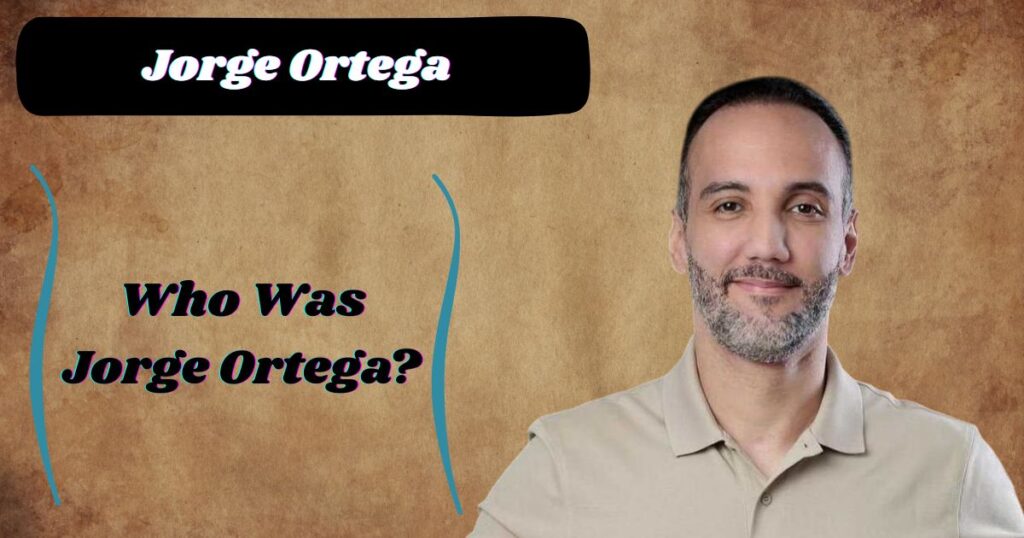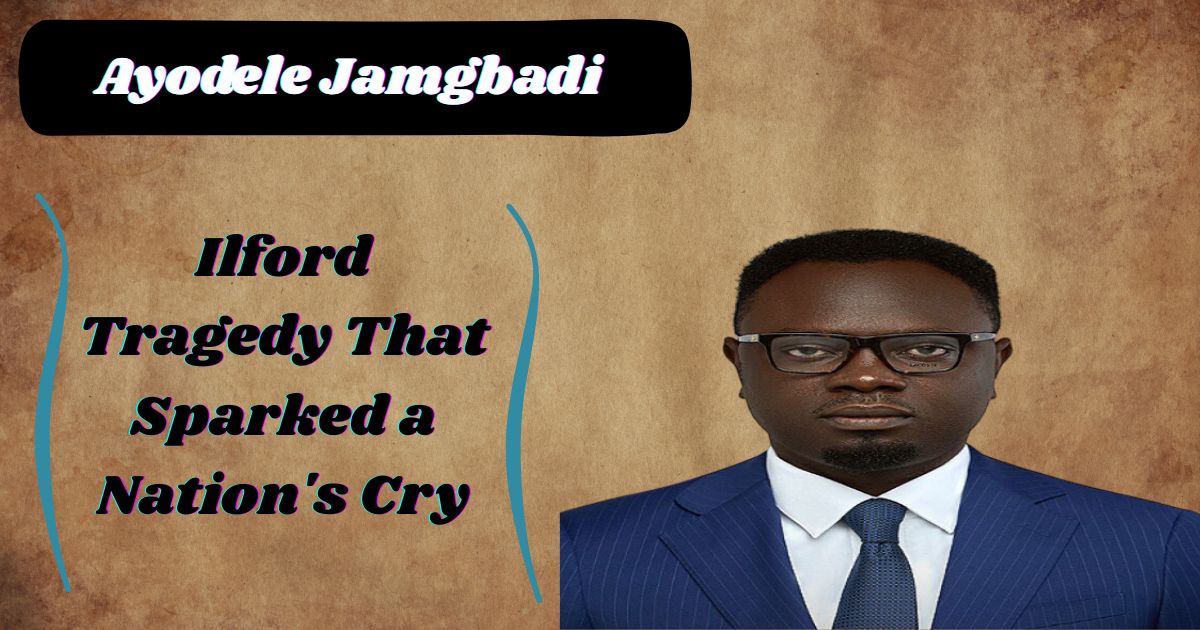The evening of December 4, 2024 started like any other at Ilford station. Commuters rushed home. Workers kept London’s transport humming. Then violence shattered everything. Jorge Ortega, a 61-year-old Elizabeth Line worker, became the victim of a brutal assault that would ignite national outrage and force Britain to confront uncomfortable truths about public safety.
Introduction: A Tragedy That Echoed Beyond Ilford
Ayodele Jamgbadi before that December night, nobody knew his name. Now it’s linked forever to one of London’s most heartbreaking workplace tragedies. The Ilford tragedy didn’t just claim one man’s life. It exposed cracks in how Britain protects its frontline workers.
Jorge wasn’t just another statistic. He was a grandfather who loved painting. A husband who filled his home with the smell of home-cooked meals. A colleague who always smiled, even on tough days. His death at Ilford station sent shockwaves through East London and beyond.
American readers might wonder why this matters across the Atlantic. The answer is simple: workplace violence doesn’t respect borders. Transit workers in New York, Chicago, and Los Angeles face identical dangers every single day. What happened at Ilford station could happen anywhere.
This isn’t just about one attack. It’s about systemic failures that put public servants at risk. It’s about a justice system under scrutiny. It’s about whether we truly value the people who keep our cities running.
The Timeline of the Ilford Station Attack
December 4, 2024, 8:49 PM. Emergency services received a desperate call from Ilford station. They found Jorge Ortega with severe head injuries. Paramedics rushed him to hospital. Medical teams fought hard. But two days later, on December 6, Jorge died.
The attack happened during a routine shift. Jorge was simply doing his job ensuring trains ran on time, helping passengers, maintaining order. Then violence erupted without warning.
Police arrested Ayodele Jamgbadi, 28, at his Ilford home shortly after. Initial charges included grievous bodily harm (GBH), affray, and possession of a prohibited weapon. When Jorge died, prosecutors elevated the charges to murder one of the UK’s most serious criminal accusations.
Jamgbadi appeared before Highbury Corner Magistrates Court first. Then he was remanded to Inner London Crown Court. His next court hearing is scheduled for January 7, 2025. The wheels of justice turn slowly, but they’re turning.
| Date | Event |
|---|---|
| December 4, 2024 | Assault at Ilford station (8:49 PM) |
| December 6, 2024 | Jorge Ortega dies from injuries |
| December 2024 | Ayodele Jamgbadi arrested and charged |
| January 7, 2025 | Next court hearing scheduled |
Who Was Jorge Ortega?

“The kindest soul” that’s how Jorge’s family described him. For decades, he served Transport for London with quiet dedication. The Elizabeth Line wasn’t just his workplace. It was where he made a difference every single day.
Jorge loved art. His paintings filled his home with color and life. In the kitchen, he created magic with simple ingredients. Friends remember the meals he’d share, always generous, always delicious.
At work, colleagues knew him as reliable and warm. “He always had a smile,” one coworker said. That smile is gone now. The workplace mourning runs deep.
His death left a void that can’t be filled. His family lost a pillar of strength. His colleagues lost a trusted friend. London’s transport network lost a dedicated public servant who deserved so much better.
Ayodele Jamgbadi: What We Know So Far
Before the Ilford station attack, Ayodele Jamgbadi lived quietly in Ilford. The 28-year-old had no high-profile criminal history that emerged publicly. He was, by most accounts, unremarkable.
That’s what makes this tragedy even more haunting. What drives someone to such violence? Authorities haven’t released a clear motive. Was it a personal dispute? An untreated mental health crisis? Random rage? Nobody knows definitively.
The mystery deepens the horror. If warning signs existed, did anyone miss them? Could early intervention systems have prevented Jorge’s death? These questions haunt investigators and policymakers alike.
Public scrutiny on Jamgbadi is intense. The Ayodele Jamgbadi case represents more than one criminal prosecution. It’s become a symbol of society’s failure to protect vulnerable workers and address potential violence before it explodes.
Legal Implications and the Charges
The legal case against Ayodele Jamgbadi carries enormous weight. Murder charges in the UK can result in life imprisonment. Add affray and weapon possession, and the severity multiplies.
Prosecutors must prove that Jamgbadi intentionally killed Jorge without lawful justification. They’ll present physical evidence, witness testimony, and forensic analysis. The burden of proof sits firmly on their shoulders beyond reasonable doubt.
The defense hasn’t revealed its strategy yet. Might they argue diminished responsibility? Could mental health issues reduce culpability? These are questions the trial will answer.
Fair trial concerns loom large. Intense media coverage risks prejudicing potential jurors. The balance between public information and judicial fairness requires careful navigation.
For advocates of frontline worker protection, this case matters deeply. A strong conviction could send a message: attacking public servants carries severe consequences. Legislative reform often follows high-profile tragedies like this.
Workplace Safety: A Growing National Concern
Jorge Ortega isn’t alone. Violence against transport workers is rising across Britain and America. Nurses get assaulted in hospitals. Retail staff face harassment daily. Public servants increasingly fear for their safety simply doing their jobs.
Current protections fail miserably. Budget cuts reduced security presence. Training programs lack depth. Technology lags behind threats. The result? Vulnerable workers with inadequate support.
Unions have pushed for reforms for years:
Immediate Needs:
- Increased security staffing at transport hubs
- Mandatory de-escalation training for all workers
- Body-worn cameras to deter violence
- AI-based surveillance systems for threat detection
- Panic buttons for instant emergency response
The Ilford tragedy gave these demands new urgency. Politicians can’t ignore them anymore. Neither can Transport for London or American transit authorities watching closely.
Investment in workplace safety isn’t charity. It’s necessity. Protected workers serve communities better. Prevention costs less than tragedy aftermath. Most importantly, every worker deserves to go home safely.
Political and Public Reaction
The response was swift and passionate. Prime Minister Sir Keir Starmer condemned the attack immediately. London Mayor Sadiq Khan pledged enhanced safety measures. Transport for London promised protocol reviews.
But words alone don’t protect workers. The public demanded action. Vigils filled Ilford’s streets. Candles flickered in Jorge’s memory. Communities across London joined in solidarity.
Social media exploded with #JusticeForJorge and #ProtectFrontlineWorkers. These hashtags trended for days, spreading awareness globally. American workers shared their own stories of workplace violence, creating international solidarity.
The public outrage wasn’t fleeting emotion. It represented deep frustration with systemic failures. People are tired of seeing frontline workers treated as expendable. They’re demanding real change, not empty promises.
Cross-party political consensus emerged rare in today’s divided climate. Everyone agreed: worker safety must improve dramatically. Budget allocations need reassessment. Legislative reform can’t wait.
The Role of the Media
Media coverage of the Ayodele Jamgbadi case walked a tightrope. Journalists needed to inform the public while respecting fair trial principles. It wasn’t always balanced.
Some outlets humanized Jorge beautifully, sharing his story with respect and dignity. Others veered into sensationalism, potentially prejudicing future jurors. The line between public interest and media ethics blurred frequently.
Responsible journalism requires restraint. Yes, people deserve information. But accused individuals also deserve fair trials. Finding that balance challenges even experienced reporters.
Social media complicated everything. Unverified claims spread rapidly. Speculation filled information vacuums. Fact-checking became crucial for readers seeking truth amid chaos.
The coverage did achieve something important: keeping workplace violence in the national conversation. Without sustained media attention, political will for reform often evaporates quickly.
Mental Health and Violence Prevention
Could intervention have saved Jorge? If Ayodele Jamgbadi struggled with untreated mental illness, did support systems fail him and his victim?
Britain’s mental health services face a funding crisis. Too few professionals serve too many people. Early warning systems miss critical signs. Crisis support comes too late, if at all.
Community mental health services need dramatic investment:
- Accessible counseling centers in every neighborhood
- Crisis hotlines with trained responders
- Workplace mental health programs
- Public awareness campaigns reducing stigma
- Integration between health services and law enforcement
Violence prevention starts long before attacks happen. Identifying at-risk individuals, providing support, and creating intervention pathways saves lives on both sides of potential tragedies.
The cost of prevention pales compared to tragedy’s aftermath. Jorge’s death devastated his family and shocked a nation. Proper mental health infrastructure might have prevented everything.
American cities face identical challenges. Underfunded mental health systems create ticking time bombs. Investment isn’t optional it’s essential for public safety.
Moving Forward: Policy Recommendations
Jorge Ortega’s death demands meaningful action. Empty words dishonor his memory. Real reform requires commitment and resources.
Immediate Security Enhancements: Enhanced security presence in transport hubs deters potential attackers. Advanced AI-based surveillance detects threats early. Better lighting and infrastructure design reduces risk. Panic buttons give workers instant emergency communication.
Employee Support Programs: Comprehensive training in de-escalation and conflict management empowers workers. Mental health resources help staff cope with stress. Peer support networks create solidarity. Regular safety audits ensure continuous improvement.
Legislative Reform: Tougher penalties for attacking public servants send clear messages. Protected class legal status recognizes frontline worker vulnerability. Mandatory incident reporting improves data collection. Funding mandates ensure adequate security investment.
Public Awareness: Educational campaigns teach respect for public workers. Bystander intervention training empowers citizens to help safely. Youth education builds empathy early.
These aren’t radical proposals. They’re common-sense measures that should have been implemented years ago. The Ilford tragedy makes delay unconscionable.
Conclusion: A Tragic Wake-Up Call
Jorge Ortega went to work on December 4, 2024 expecting an ordinary shift. He never came home. Ayodele Jamgbadi faces justice for that crime. But justice for one case doesn’t fix systemic problems.
Every frontline worker deserves protection. Transit employees, nurses, retail staff they keep society functioning. They deserve safety, respect, and support.
The national outcry following Jorge’s death must translate into action. Politicians must fund security improvements. Employers must prioritize worker safety. Communities must value public servants.
American readers should pay attention. Your transit workers face identical dangers. The solutions Britain develops could save American lives too.
Jorge’s legacy shouldn’t be just grief and outrage. It should be transformation. Better protections. Stronger support systems. A society that truly values those who serve it.
Let his death mean something. Let it spark the change that prevents the next tragedy. Let it remind us that every worker no matter how “ordinary” their job deserves to go home safely at the end of their shift.
The time for action isn’t tomorrow. It’s right now.


